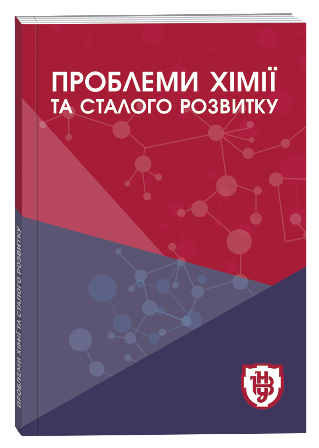METHODOLOGICAL APPROACHES AND PATTERNS OF TRAINING FUTURE ENGINEERING TROOPS SPECIALISTS FOR PROFESSIONAL ACTIVITY UNDER MARTIAL LAW CONDITIONS
DOI:
https://doi.org/10.32782/pcsd-2024-2-8Keywords:
methodology, methodological approach, system, training, military education, future specialists of engineering troops, readiness for military and professional activityAbstract
The article defines the conceptual basis of the scientific-methodological pedagogical system for training future specialists of engineering troops for professional activities under martial law conditions. The training of future specialists of engineering troops for professional activities is considered a purposeful process of mastering military-special knowledge and skills and developing organisational and volitional qualities, which enable them to fulfil their duties within the acquired militaryaccounting speciality successfully. The essence of general scientific methodological approaches, philosophical principles, and specific patterns of constructing a pedagogical system for training future specialists of engineering troops for professional activities under martial law conditions is revealed. A unified methodological system is justified, encompassing systemic, competency-based, practice-oriented, and personality-oriented methodological approaches. It is aimed at defining the goals of training future specialists of engineering troops for professional activities and the mechanisms for achieving them. The specific patterns that determine the interdependence between the goals of military education and the training of future specialists of engineering troops under martial law conditions, the content of this training, and the results of the development of military science and military technology with their projection into military science and practice; the motivation of cadets for active educational and cognitive activities and the correspondence of the training of future specialists of engineering troops to the requirements of real service and combat activities; scientifically grounded organisation and implementation of training future military specialists under martial law conditions, and the formation of readiness of future specialists of engineering troops for professional activities are depicted. It is substantiated that the developed methodological basis allows for a more thorough consideration of the essence of the pedagogical system for training future specialists of engineering troops for professional activities under martial law conditions and, subsequently, to justify and develop a model of the researched process with the identification of ways for its further implementation.
References
Брижатий Є. І. Військова освіта в контексті національної безпеки та оборони: сучасний підхід. Військова освіта. 2020. Вип. 1 (42). С. 35–45.
Васильєв О. М. Сучасні тенденції управління змінами в системі вищої військової освіти. Військова освіта. 2020. Вип. 2 (42). С. 27–38.
Галкіна В. Д. Компетентнісний підхід як методологічна основа професійної підготовки військових фахівців. Військова освіта. 2014. Вип. 1. С. 59–65.
Зельницький А. М. Системоутворюючі фактори педагогічної системи закладів вищої військової освіти. Військова освіта. 2020. № 1 (42). С. 136–146.
Зорій Я. Компетентнісний підхід до практичної підготовки громадян за програмою офіцерів запасу в закладах вищої освіти. Ukrainian professional education. 2018. Вип. 3. С. 65–70.
Каліна К. Є., Штефан Л. А. Методологічні підходи до дослідження проблем педагогічної теорії і практики. Теорія та методика навчання та виховання. 2019. Вип. 46. С. 59–69.
Лігоцький А. О. Методологічні ознаки проектування інноваційної моделі вищої освіти в контексті світового і національного розвитку. Інтернаука. Серія: Юридичні науки. 2019. Вип. 3 (17). С. 62–73.
Олійник Л. В. Компетентнісний підхід як необхідна умова навчання військово-спеціальних дисциплін магістрів військово-соціального управління. Військова освіта. 2016. Вип. 2. С. 153–161.
Полторак С. Т. Трансформація системи військової освіти України на шляху до досягнення стандартів НАТО. Наука і оборона. 2018. Вип. 2. С. 3–10.
Рахманов В. Основні підходи до системи професійної військової освіти в Україні. Військова освіта. 2021. Вип. 1 (43). С. 279–288.
Рахманов В., Тимчук Л. Основні етапи системного підходу до навчання у вищому військовому навчальному закладі. Військова освіта. 2022. Вип. 1 (45). С. 207–218.
Рижиков В. С., Горячева К. С. Концептуальні підходи до проєктування системи гарантування якості підготовки офіцерських кадрів у вищих військових навчальних закладах, військових навчальних підрозділах закладів вищої освіти України. Інноваційна педагогіка. 2019. Вип. 15 (1). С. 78–81.
Цимбалюк М. М., Слівінський В. Р. Феноменологічні закономірності становлення фахівця органів внутрішніх справ: монографія. Львів: Ліга-прес, 2015. 280 с.







